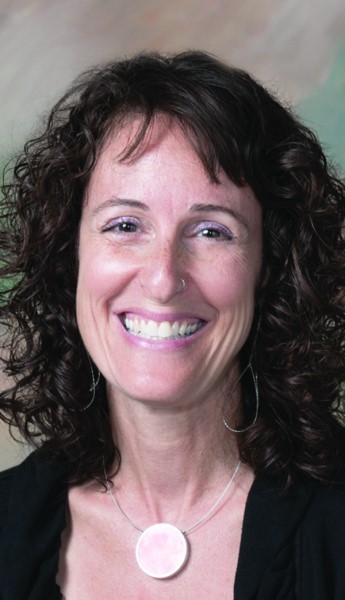Andrea Katzman takes the helm at JCDS
The Jewish Community Day School of Rhode Island recently announced that Principal Andrea Katzman will become the new Head of School, starting July 1. She will succeed Adam Tilove, who has directed the school since 2013 and will be moving on to a new entrepreneurial venture.
Katzman has been involved with the school since 2005, when she served on the committee that transformed the Alperin Schechter Day School into JCDS. The parent of two children who graduated in the 2010s, she joined the faculty in 2007 as the lead teacher in Pre-K. She became the teacher leader in 2013 and the Principal last year. With a master’s degree in American Studies, she has also been an adjunct instructor in Education at Hebrew College and Rhode Island College. Last spring she received a Grinspoon Foundation Award for Excellence in Jewish Education.
John Landry, whose twin sons were in her first pre-K class at the school, spoke with her about her plans. The conversation was edited for clarity.
What led you to become Head of School?
I love teaching. But I’ve also enjoyed coaching other teachers and working to build a community around an educational vision. And I’ve always been excited about fusing progressive education and Judaism, something I initiated 10 years ago in my own classroom and have since implemented with other teachers. I’ve worked closely with Adam Tilove over the last four years, solidifying the school’s commitment to progressive education, developing a knowledgeable faculty and setting up programs around project-based learning and design thinking. Now we have the opportunity to build on that foundation.
What’s the connection between progressive education and Judaism?
John Dewey, the father of progressive education, taught that education should address not just what the teacher wants to say, but also students’ understandings and curiosity. That’s where you get the energy that brings on lasting learning, when students embrace a subject rather than regurgitate facts. Yet student-centered learning eventually falls apart without a clear purpose. You have to combine it with real obligations, which for Dewey were those of citizenship in a democracy. Judaism promotes an ethical vision with sacred values – providing obligations that complement our civic ones. So you get learning that covers all the profound aspects of life.
Design thinking complements this vision. It’s not just about designing a product; it’s also about listening to people, identifying their desires, and creating something that meets those needs. That process starts with empathy, which is also a major Jewish value.
Progressive education also fits well with Judaism’s egalitarianism. Holiness isn’t just for priests or rabbis; it’s for everyone. The best kind of education teaches traditions to our kids so they can understand them in a hands-on way. We do this literally at the school when the kids build replica Noah’s arks or make bricks as the slaves did in Exodus.
From that basis, kids can take responsibility for improving society. That means both within the Jewish community and within our larger culture. As Yossi Abramowitz says, “Judaism is engaged in the world to raise it up.”
What are some other examples?
One of the first things Adam did was to convert a classroom into a Design Lab, where kids could go and play out all sorts of possibilities. Teachers have integrated the lab into lesson plans so kids can grab onto a concept in class and run with it. They’ve reinvented the Kabbalat Shabbat service, created a “recharging station” for taking a break during the day, and built a life-sized bird’s nest. Right now they’re figuring out how to boost recycling at school.
To foster these efforts we developed STEAM Week, where students in the Brown/RISD Science, Technology, Engineering, Arts and Mathematics Club teach our kids about design. Our teachers work with these volunteers to develop age-appropriate projects. We’ve also collaborated with the Center for Dynamic Learning, where our students and those from the Islamic School in Rhode Island work on STEAM projects while building relationships.
This year the fourth-grade teachers set up “Genius Hour,” where every student takes an interest and designs a project around it. One is working on creating the largest set of chopsticks in the world, another is building a dirt bike and a third is working on helping the Humane Society. Along the way they’re developing English, math, science, marketing and research skills, and building their sense of belonging to the community.
What’s on the horizon?
Our main challenge is building on the momentum of these experiments. We want teachers to run their classes to honor their students’ interests and clarify their obligations to the community. I want teachers to see themselves as leaders so more programs come from them than from the administration. It’s more exciting and effective for everyone that way.
Beyond that, we’re excited about our Beta Midrash project. We want to be an educational resource and destination for the broader Jewish community, not just students through 5th grade. Over the next few years, we’ll be developing materials around progressive education for middle school and high-school kids to supplement the important learning at the synagogue schools. We’d like our design lab and related curriculum to be available not just to our alumni but to all Jewish teens in greater Rhode Island.
Adam has given us a great start, and I’m excited about working with the broader school community.
JOHN LANDRY lives in Providence with his wife, Rochelle Rosen, who is vice-president of JCDS, and their two sons.








